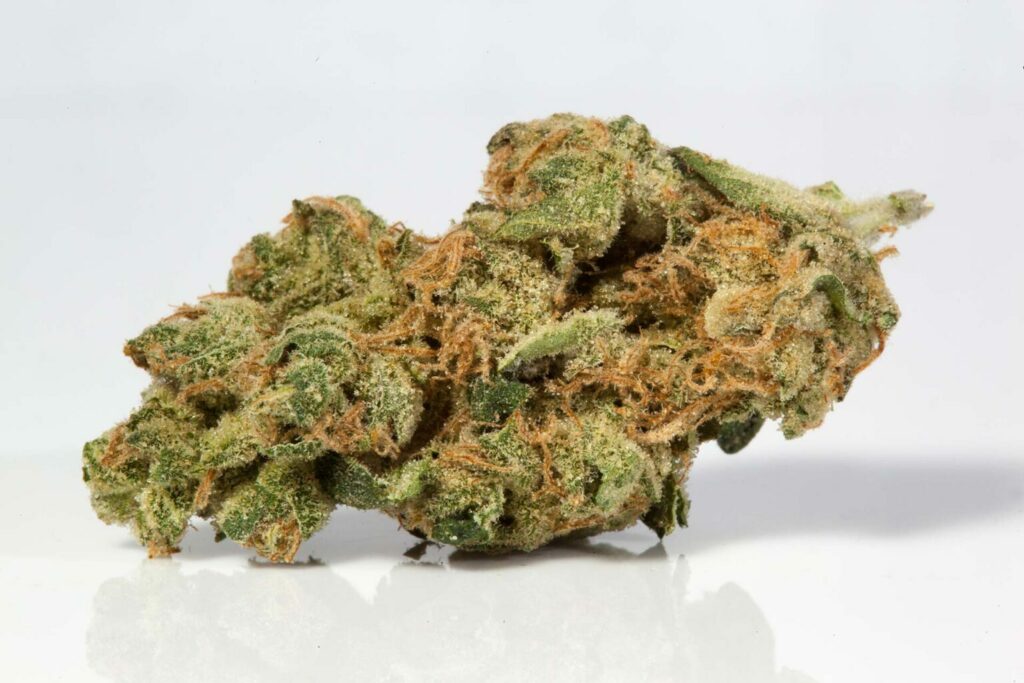Introduction
Beta-Caryophyllene, often referred to as BCP or simply caryophyllene, is a naturally occurring terpene found in various plants, including cannabis. Terpenes are aromatic compounds responsible for the distinct scents and flavors of different strains of cannabis. Caryophyllene is particularly notable not only for its unique spicy and peppery aroma but also for its potential therapeutic effects. In this exploration of beta-caryophyllene, we will delve into the strains it is commonly found in, its potential effects and benefits, and how it contributes to the complex world of cannabis terpenes.
Strains Containing Beta-Caryophyllene
Beta-caryophyllene is a terpene found in various cannabis strains, and its presence can contribute to the distinct characteristics of each strain. While it is not exclusive to any particular strain, some strains are known for their higher caryophyllene content. Strains that often contain notable amounts of beta-caryophyllene include:
- Girl Scout Cookies: Girl Scout Cookies (GSC) is famous for its sweet and earthy aroma, which includes a notable presence of caryophyllene. This strain is celebrated for its uplifting and euphoric effects.
- Bubba Kush: Bubba Kush is another strain known for its caryophyllene content. It has a strong, earthy scent and provides relaxing and sedative effects, making it a favorite among those seeking stress and pain relief.
- Original Glue (GG4): Original Glue, often referred to as GG4, boasts an earthy and pungent aroma with a significant caryophyllene presence. It is known for its potent and relaxing effects, making it a popular choice for individuals dealing with insomnia and chronic pain.
- Master Kush: Master Kush is a classic strain with a sweet and earthy aroma rich in caryophyllene. It offers a balance of relaxation and mental clarity, making it an appealing choice for those looking for both stress relief and focus.
- ACDC: ACDC is a high-CBD strain that often contains beta-caryophyllene. It has a mild aroma and is favored for its potential to provide relief from pain, anxiety, and inflammation without inducing a strong psychoactive effect.
Potential Effects and Benefits of Beta-Caryophyllene
Beta-caryophyllene is more than just an aromatic compound; it also has the potential to offer several therapeutic benefits:
- Anti-Inflammatory: One of the most notable properties of caryophyllene is its anti-inflammatory effect. It may help reduce inflammation and alleviate conditions characterized by chronic inflammation, such as arthritis.
- Pain Relief: Caryophyllene is believed to have analgesic properties, potentially providing relief from pain and discomfort. It is of interest to individuals dealing with various pain-related conditions.
- Anxiety and Depression: Some research suggests that caryophyllene may have anxiolytic and antidepressant effects, making it appealing for those seeking natural remedies for mood disorders.
- Neuroprotection: Beta-caryophyllene has shown promise in protecting nerve cells and potentially slowing the progression of neurodegenerative diseases, such as Alzheimer’s and Parkinson’s.
- Gastrointestinal Health: Caryophyllene may have a role in promoting gastrointestinal health by reducing inflammation in the gut. This is particularly relevant for individuals with conditions like irritable bowel syndrome (IBS).
- Antibacterial and Antifungal: Caryophyllene’s antimicrobial properties make it a candidate for combating bacterial and fungal infections.
- Stress Reduction: The potential calming and stress-relief properties of caryophyllene can be valuable for individuals dealing with anxiety and daily stressors.
- Beyond Cannabis: Sources of Beta-Caryophyllene
While cannabis is a well-known source of beta-caryophyllene, this terpene can also be found in various other plants. Some common sources of caryophyllene include:
- Black Pepper: Black pepper is known for its peppery aroma, which is attributed to caryophyllene. It is a popular culinary spice and has been used in traditional medicine for its potential health benefits.
- Cloves: Cloves contain caryophyllene and are often used for their aromatic and culinary qualities. In traditional medicine, cloves have been used for their potential analgesic and anti-inflammatory properties.
- Rosemary: Rosemary is an aromatic herb that contains caryophyllene. It is used in cooking and has been studied for its potential antioxidant and anti-inflammatory effects.
- Hops: Hops, an essential ingredient in brewing beer, contain caryophyllene and contribute to the distinctive flavors and aromas of different beer varieties.
- Basil: Basil is an herb known for its pleasant aroma and culinary uses. It contains caryophyllene and is rich in other terpenes as well.
- Oregano: Oregano contains caryophyllene and is a common culinary herb. It is also recognized for its potential antimicrobial and anti-inflammatory properties.
Conclusion
Beta-caryophyllene is a versatile and valuable terpene found in cannabis and numerous other plants. Its unique aroma and potential therapeutic effects make it a compound of interest for both cannabis enthusiasts and individuals seeking natural remedies for various health conditions. As research on terpenes like caryophyllene continues to expand, it offers exciting possibilities for enhancing our understanding of

